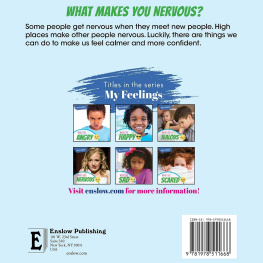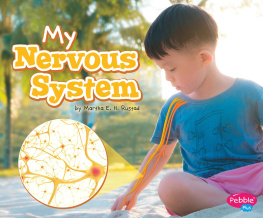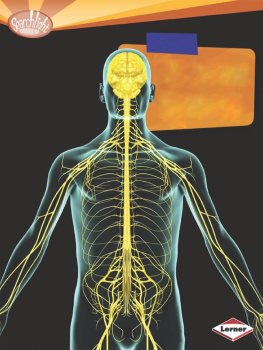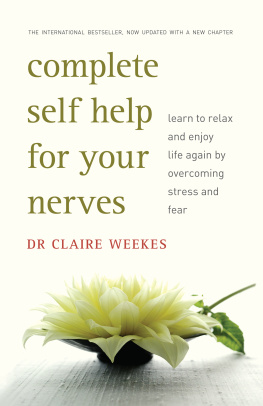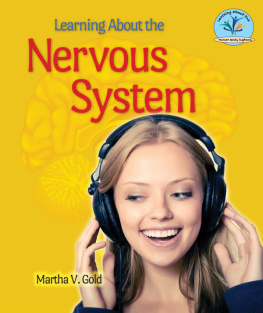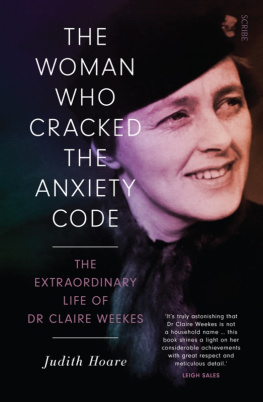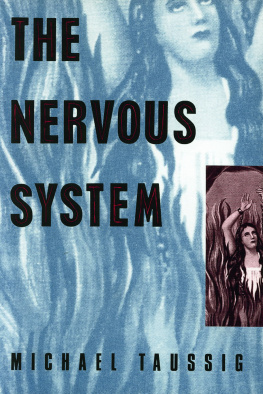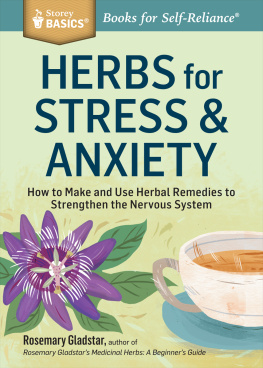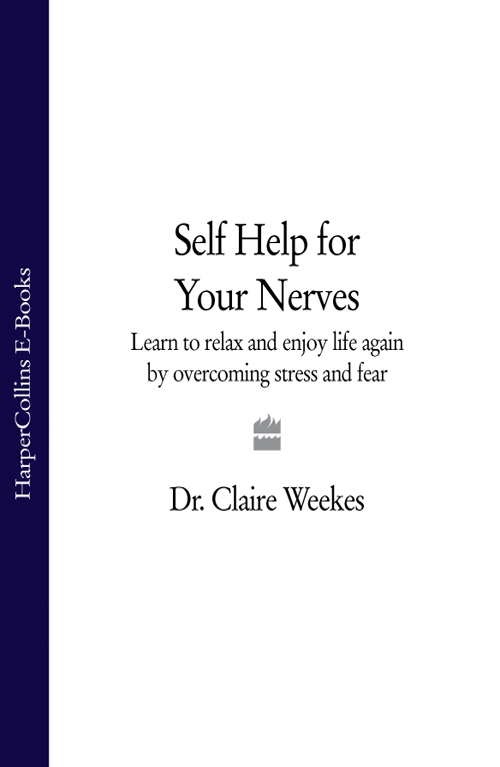
DR CLAIRE WEEKES
SELF-HELP
for your
NERVES
Learn to relax and enjoy life again
by overcoming stress and fear

Many of those who suffer from nervousness are persons of fine sensibilities, of delicate regard for honour, endowed with a feeling of duty and obligation. Their nerves have tricked them, misled them.
W. R. Houston
Contents
CHAPTER 1
The Power Within You
If you are reading this book because you are having a nervous breakdown or because your nerves are in a bad way, you are the very person for whom it has been written and I shall therefore talk directly to you as if you were sitting beside me.
I shall show clearly and simply, and yet with all necessary detail, just how a nervous breakdown begins and develops and how it can be cured. T HE ADVICE GIVEN HERE WILL DEFINITELY CURE YOU, IF YOU FOLLOW IT. This will take perseverance and some courage. You may notice that I have not asked for patience. A nervously sick person is rarely patient, because sick nerves are usually agitated nerves that is one reason why he becomes bewildered by them. To wait patiently in a queue can be almost intolerable misery for such a person. However there is a substitute for patience and this I shall present to you later.
It will not be difficult for you to read this book: it is about you and your nerves, and for this reason you will read it with interest, whereas to read an ordinary book or newspaper may seem an impossibility, or, should you succeed, may leave you more distressed than when you began.
I used the word cure and this may surprise you, because it implies an illness and you may think of yourself as more bewildered than ill lost in a maze trying to find your way back to the person you used to be.
On the other hand, you may be so depressed and exhausted that you may readily agree that you are ill. Whether or not you consider yourself ill, more than anything else you want to be yourself again. You probably look at others in the street and wonder why you cant be like them? What is this terrible thing that has happened to you? What is the meaning of these terrifying feelings?
Such feelings may have possessed you for a long time, even for years. Indeed, you may have reached a point of such desperate suffering that you could be thinking of suicide, or may even have attempted it. And yet, however deeply involved you may be in nervous breakdown, it is possible to recover and enjoy life again. I emphasize, however deeply involved.
The guidance you need is in this small book. The perseverance and courage you can, with help, find within yourself. The strength to recover is within you, once you are shown the way. I assure you of this.
Each of us has unsuspected power to accomplish what we demand of ourselves, if we care to search for it. You are no exception. You can find it if you make up your mind to, however great a coward you may think yourself at this moment. I have no illusions about you: I am not writing this book for the rare brave people, but for you, probably a sick, suffering, ordinary human being with no more courage than the rest of us, but and this is the important thing with the same unplumbed, unsuspected power in reserve as the rest of us. It is possible that you may be aware of such power but may feel, because of your nervous condition, unable to release it. This book will help you find this power, and show you how to release and use it.
First, you must know how your nervous system works.
CHAPTER 2
How Our Nervous System Works
Our nervous system consists of two main parts, known as the voluntary nervous system and the involuntary nervous system.
THE VOLUNTARY NERVOUS SYSTEM
This part directs the movement of the limbs, head and trunk, and we control it more or less as we wish, hence its name. It consists of the brain and spinal cord, from which a number of paired nerves arise, each ending in the muscle it supplies.
THE INVOLUNTARY NERVOUS SYSTEM
This second part controls the internal organs heart, blood-vessels, lungs, intestines, etc., even the flow of saliva and sweat. It has its headquarters in a brain centre connected with a delicate network of fibres lying on either side of the spinal column (backbone), from which numerous threadlike branches pass to the internal organs. This second part is not under our immediate control but and this is of paramount importance in understanding nerves it responds to our moods. For example, when we are afraid our cheeks blanch, our pupils dilate, our heart beats quickly and our hands may sweat. We do not consciously react like this and we have no power to stop these reactions other than to change our mood. We therefore call this part of the Involuntary Nervous System.
The involuntary nervous system itself consists of two parts, the sympathetic and the parasympathetic. Of these, the sympathetic sympathizes more demonstratively with our moods, hence its name. The action of the sympathetic nerves strengthens an animals defences against the various dangers which beset it, such as extremes of temperature, deprivation of water, attack by its enemies.
Have you ever seen a frightened animal standing stock-still from fear before taking flight? Its nostrils and its pupils dilate, its heart races, it breathes quickly. The sympathetic division of the involuntary nervous system has prepared it for fight or flight.
The pattern of fear
We human beings react in the same way when afraid. Fear begins as an impulse in our brain which excites the sympathetic nerves to stimulate various regions (skin) and organs (heart, lungs, intestines) to produce the signs and symptoms of fear the sweating hands, racing heart, quick breathing, dry mouth, etc. The sympathetic nerves do this by means of a substance called adrenalin, which is released at the nerve terminals in the organs concerned. Also, our two adrenal glands, themselves under sympathetic nervous stimulation, secrete additional adrenalin into our bloodstream to enhance the action of the sympathetic nerves.
When we are afraid we also feel a horrible sensation in the pit of the stomach. This is the most distressing component of fear. However, the complete picture of fear includes all the symptoms induced by adrenalin, the sweating hands, racing heart, heaving chest, etc., as well as the spasm of fear felt in our middle.
Normally we do not feel our body functioning, because parasympathetic nerves hold the sympathetic nerves in check. It is only when we are overwrought (angry, afraid, excited) that the sympathetic nerves dominate the parasympathetic and we are conscious of certain organs functioning. A healthy body without stress is a peaceful body.
Most of us associate kindness and understanding with the word sympathetic, and as the reactions of the sympathetic nerves can be anything but kind, some people find it difficult to reconcile themselves to the term sympathetic nerves. Therefore, to avoid any bewilderment, I shall henceforth refer to the sympathetic nerves as the adrenalin-releasing nerves which, after all, is what they are.
So, briefly, we have a Voluntary Nervous System by means of which we move our body; an Involuntary Nervous System, consisting of adrenalin-releasing and parasympathetic divisions which control the functions of our internal organs, each part balancing the other. Normally we do not feel our involuntary nervous system working, but when we are overwrought the adrenalin-releasing nerves are especially stimulated and we may feel our heart beat quickly, our hands may sweat and our mouth may feel dry. In addition, our stomach may churn, we may feel breathless, giddy, and may have an urgent need to retire to the toilet.
Next page

